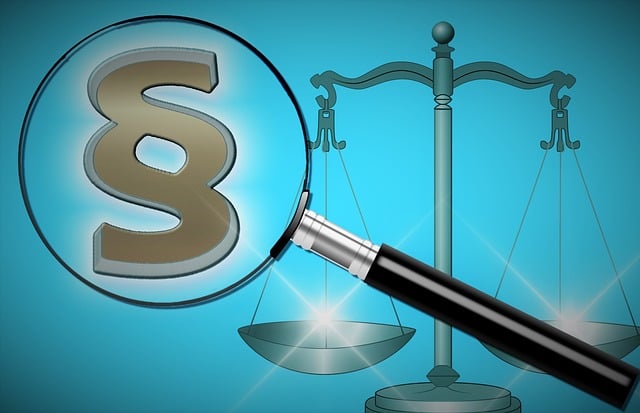Mail wire fraud, a sophisticated digital crime using deceptive emails to manipulate financial transactions, demands a deep understanding of breach of contract litigation within white-collar defense. This process involves navigating international jurisdictions and analyzing intricate digital evidence. Common tactics include imposter emails creating urgency for wire transfers or phishing as trusted entities. The Breach of Contract Litigation Process Explained is crucial for recovering losses and preventing future frauds, with outcomes ranging from charge dismissal to substantial financial compensation after proving contractual breaches. Effective defense strategies, combining tech solutions and employee training, are vital for winning verdicts in these complex cases.
Mail wire fraud, a sophisticated and prevalent crime, involves deceptive practices through electronic communication. This comprehensive guide delves into understanding, identifying, and mitigating mail wire fraud. We explore common schemes, their legal implications, and breach of contract consequences. Learn about the litigation process step-by-step, empowering you to protect against such scams. Discover best practices and preventive measures to safeguard your transactions, ensuring a secure approach in the digital age, especially when navigating complex contracts.
- Understanding Mail Wire Fraud: A Comprehensive Overview
- Common Types of Mail Wire Fraud Schemes
- The Legal Implications and Breach of Contract
- Litigation Process: Step-by-Step Guide
- Preventive Measures and Best Practices
Understanding Mail Wire Fraud: A Comprehensive Overview

Mail wire fraud is a sophisticated and increasingly common scheme where criminals exploit electronic communication systems to defraud individuals and businesses. This type of fraud involves manipulating financial transactions through deception, often using emails or other digital messaging platforms to trick recipients into transferring money or sensitive information. Understanding mail wire fraud is crucial in today’s digital age, where such schemes can have devastating financial and reputational consequences for respective businesses and individuals alike.
The breach of contract litigation process explained in the context of mail wire fraud reveals a complex legal landscape. When a business or person falls victim to this type of fraud, they may face challenges in pursuing justice due to the intricate nature of digital evidence and international reach of these crimes. A robust general criminal defense strategy becomes essential, with a focus on white-collar defense techniques to navigate the complexities of mail wire fraud cases. This involves meticulous investigation, gathering digital forensics evidence, and understanding the legal frameworks that govern electronic transactions and communication.
Common Types of Mail Wire Fraud Schemes

Mail Wire Fraud schemes have evolved over the years, taking advantage of technological advancements and targeting businesses across various industries. One common tactic involves imposter emails that mimic legitimate communications from banks or financial institutions, urging recipients to wire funds immediately. These emails often create a sense of urgency, claiming that failure to act promptly will result in contract termination or legal consequences.
Another scheme involves phishing, where fraudulent actors pose as trusted business associates or government agencies, requesting sensitive information or W-2 forms to process “urgent” transactions. Breach of Contract Litigation Process Explained can sometimes arise from these schemes when wire transfers are made under duress or due to false representations, leading to disputes that require legal intervention for his clients. The respective business must then navigate the complex litigation process, which may include jury trials, to recover losses and protect itself from future fraud attempts.
The Legal Implications and Breach of Contract

Mail wire fraud, a sophisticated form of deception, carries significant legal implications, particularly when it involves a breach of contract. The litigation process for such high-stakes cases can be complex and demanding, requiring meticulous attention to detail. When a party fails to fulfill contractual obligations, it may lead to a breach that entitles the aggrieved party to seek legal recourse. This often involves initiating the Breach of Contract Litigation Process Explained, which aims to resolve disputes through negotiation, mediation, or litigation.
In instances where mail wire fraud is involved, proving a breach can be challenging but not impossible. Corporate and individual clients alike may find themselves in such situations, prompting them to seek legal counsel to navigate these complex matters. The outcome could result in the complete dismissal of all charges if the evidence presented fails to establish a clear breach or if the plaintiff cannot prove damages.
Litigation Process: Step-by-Step Guide

The Breach of Contract Litigation Process is a meticulous and structured series of steps designed to resolve disputes arising from contractual agreements. It begins with a thorough review of the contract, identifying specific clauses that have been allegedly breached. This initial stage involves gathering relevant documents and evidence to support the claim. Once initiated, the process advances through several key phases.
First, the aggrieved party serves a formal notice on the defendant, outlining the breach and demanding resolution. If negotiations fail to yield a satisfactory outcome, the case progresses to all stages of the investigative and enforcement process. This involves extensive fact-finding, expert witness testimony, and legal argument. In cases involving white collar and economic crimes, these investigations can be complex and lengthy. Throughout, both parties present their cases, with the ultimate goal of achieving a settlement or, if unsuccessful, preparing for trial. The court will then deliberate, ultimately rendering a verdict, which may result in monetary damages, specific performance, or other remedies to rectify the breach. Winning challenging defense verdicts requires robust legal strategies and a deep understanding of contract law.
Preventive Measures and Best Practices

Preventing mail wire fraud is a multi-faceted approach that involves both technological solutions and prudent practices. Organizations should implement robust authentication measures, such as two-factor authentication (2FA) for all user accounts, to safeguard against unauthorized access attempts. Regular security audits and penetration testing are essential to identify vulnerabilities and ensure the integrity of systems handling sensitive financial transactions.
Moreover, fostering a culture of security awareness among employees is paramount. Training programs that educate staff about phishing scams, social engineering tactics, and best practices for handling confidential information can significantly reduce the risk of human error. Proactive monitoring of network activities and implementing robust logging mechanisms enable organizations to track suspicious behavior and detect fraudulent attempts at an early stage. Understanding the Breach of Contract Litigation Process Explained is also crucial in high-stakes cases, where winning challenging defense verdicts hinges on meticulous documentation and adherence to legal procedures throughout all stages of the investigative and enforcement process.
Mail wire fraud, with its sophisticated yet deceptive schemes, poses a significant threat to individuals and businesses alike. Understanding the common types, legal implications, and litigation process is essential for prevention and effective response. By implementing best practices and preventive measures, you can significantly reduce the risk of falling victim to these fraudulent activities. Remember, knowledge is the first line of defense against breach of contract litigation, as explained in our comprehensive guide on the topic.






